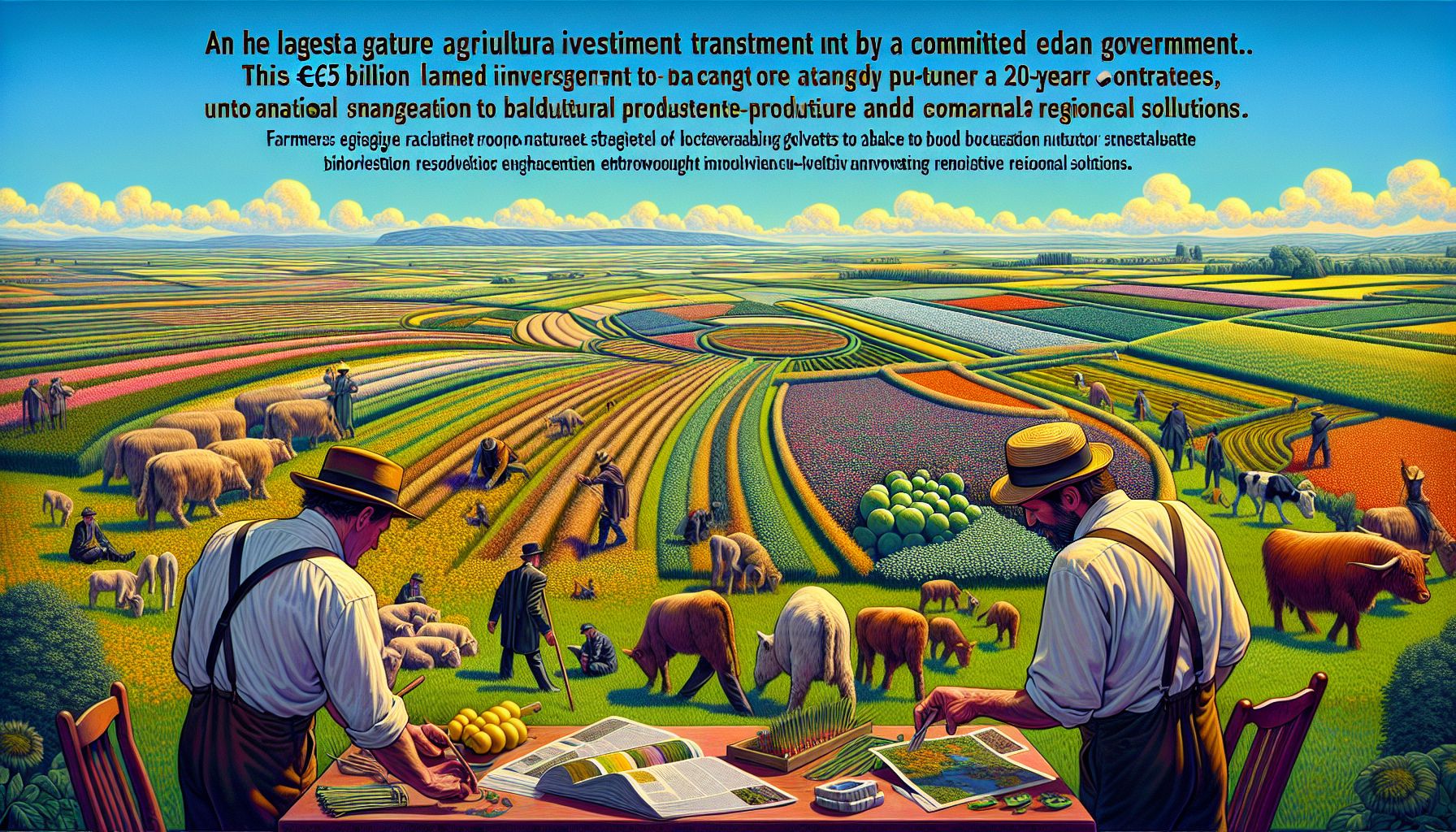Dutch Government Unveils €5 Billion Plan to Transform Agricultural Landscape

The Hague, Friday, 29 November 2024.
In a groundbreaking initiative announced today, the Dutch government commits €5 billion through 2030 to revolutionize farming practices. The plan aims to expand nature-managed agricultural land to 280,000 hectares, introducing 20-year contracts for farmers while balancing food production with environmental stewardship. This marks the largest agricultural sustainability investment in Dutch history, targeting nitrogen reduction and biodiversity enhancement through innovative regional solutions.
Targeting Agricultural Sustainability
The Dutch government’s ambitious plan signifies a pivotal shift in its agricultural policy, focusing on sustainability and climate resilience. By expanding the Agrarisch Natuur en Landschapsbeheer (ANLb) subsidy scheme, the government aims to cover 280,000 hectares, a substantial increase from the current 100,000 hectares. This initiative is part of a broader strategy to integrate agricultural practices with regional environmental conditions, fostering collaboration between farmers and knowledge institutions[1].
Strategic Investments and Innovations
To effectively implement these changes, the government has earmarked between €1.25 billion and €2.5 billion specifically for innovations and goal orientation, with an additional €250 million dedicated to improving manure management. This financial commitment underscores the importance of innovation in achieving environmental targets, such as reducing nitrogen emissions and enhancing biodiversity. Minister Femke Marije Wiersma (LVVN) emphasized the critical role of targeted steering at the business level and robust regulations that support farmers in contributing to nature management[1].
Collaborative Efforts and Regional Focus
The plan’s implementation relies heavily on collaboration with local authorities and agricultural collectives, ensuring that solutions are tailored to specific regions, particularly vulnerable areas like peat meadows and vulnerable nature zones. The ‘Room for Agriculture and Nature’ approach will guide these efforts, emphasizing the need for area-specific actions. The government’s allocation of €500 million annually for agrarian nature management from 2026 reflects a long-term commitment to fostering biodiversity and meeting climate goals through sustainable agricultural practices[1].
Global Context and Implications
This move aligns with global efforts to combat climate change, as highlighted in international discussions on sustainable development goals (SDGs). The integration of climate action into agricultural policy is crucial, given the significant impact of farming on environmental health. The Dutch government’s strategy mirrors broader trends in Europe, where rural development and agricultural policies are increasingly intertwined with climate responsiveness and sustainability frameworks[2][3].

